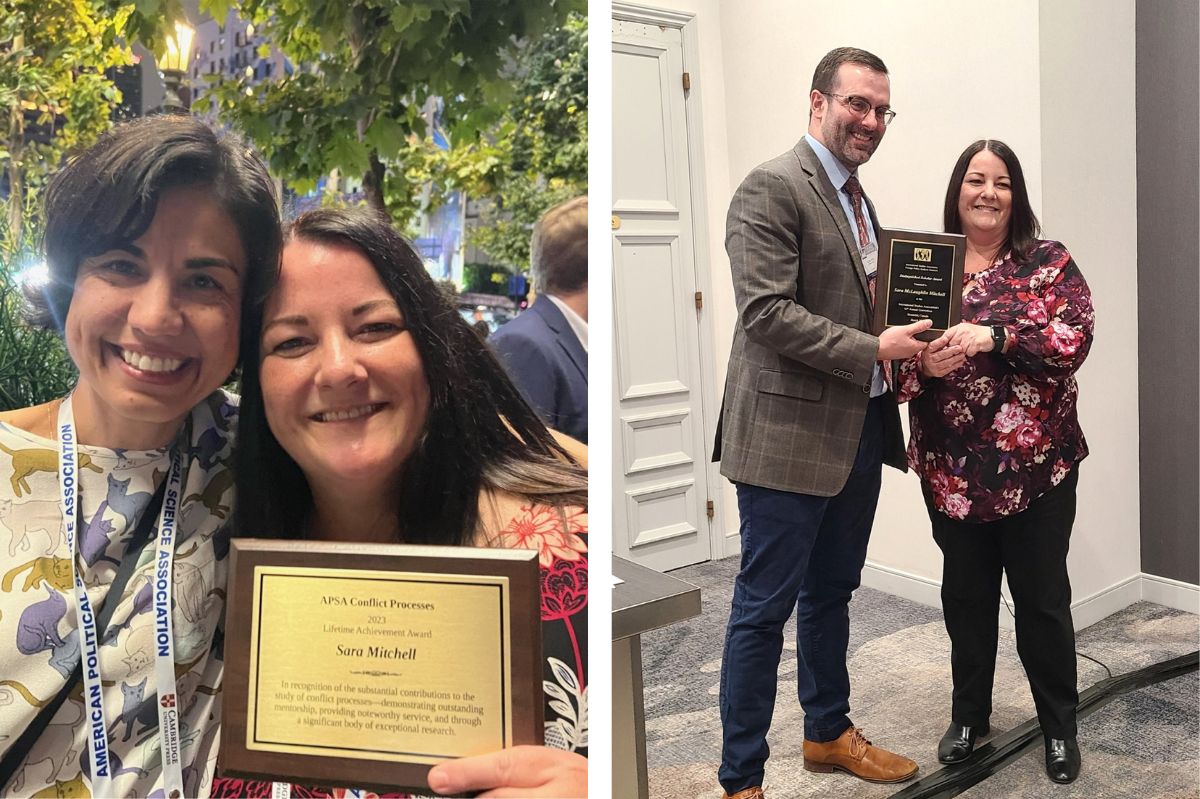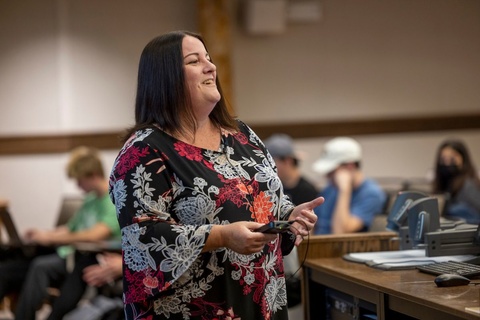By Charlotte Brookins
Sara Mitchell, a professor in the Department of Political Science in the College of Liberal Arts and Sciences, recently received two awards for outstanding research, teaching, and scholarship in her field. Mitchell has been a professor and collegiate fellow in the political science department since 2011.
Last spring, she received the Distinguished Scholar Award, which is given by the Foreign Policy Analysis section of the International Studies Association (ISA). The award is presented annually to honor extraordinary work in the analysis of foreign policy.
She also earned the Lifetime Achievement Award from the Conflict Processes section of the American Political Science Association (APSA), which is presented every other year. Mitchell received the award in the fall of this year.
“The awards are meant to recognize a demonstration of outstanding mentorship, noteworthy service, and a significant body of exceptional research,” explains Mitchell. “I felt extremely honored to receive them.”

Mitchell’s research, which was commended by both of these awards, focuses primarily on the causes of conflicts, such as interstate and civil wars, while examining how international organizations can aid in the de-escalation of these disputes.
“I study conflict using statistical analysis of data across all regions over the past 200 years,” Mitchell elaborates. “I have collected original data on diplomatic conflicts involving land, maritime, river, and identity issues in the Issue Correlates of War (ICOW) Project, which helps us better understand how the characteristics of contested issues influences the chances for war and peace.”
Mitchell says she was drawn to her course of study as a result of her upbringing in north central Iowa.
“Farming communities are keenly aware of events in world politics that can affect the price of crops, land, and equipment,” says Mitchell. “My parents were informed in politics and got me interested in it from a young age. My interests in democratic and international institutions were also fostered by many influential professors and mentors in my career.”

More recently, Mitchell’s research has shifted focus to how natural disasters and climate change influence the likelihood of violence within and among different countries. She also currently works with Elise Pizzi, an associate professor of political science, as well as many students in the Disasters, Migration, and Violence (DMV) Lab.
The DMV lab is currently working on compiling a dataset of government responses to disasters in order to evaluate how government responses to disasters influence the relationships between catastrophes, migration, and political violence.
“I am so grateful to all those who have helped me in my career,” says Mitchell. “I’m looking forward to the future of my career here.”